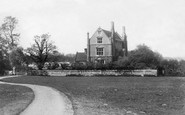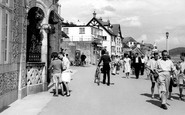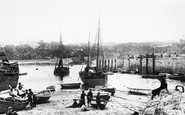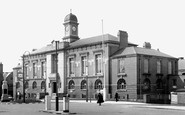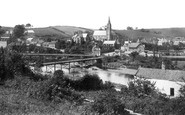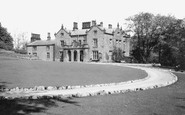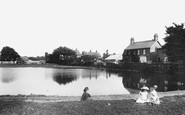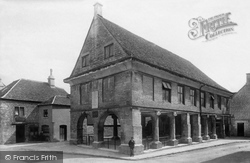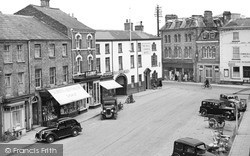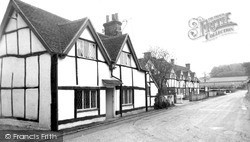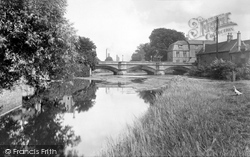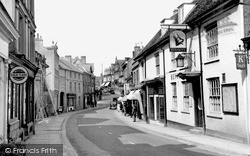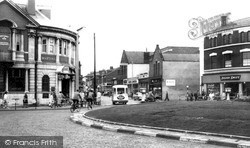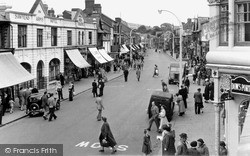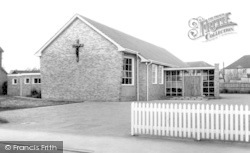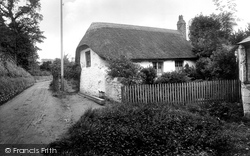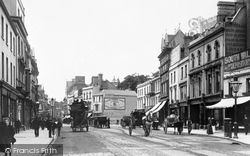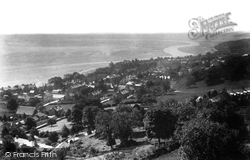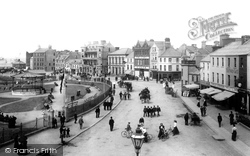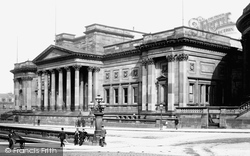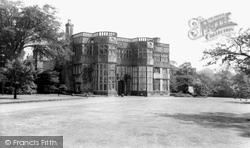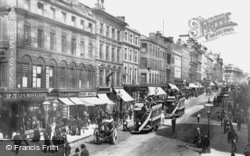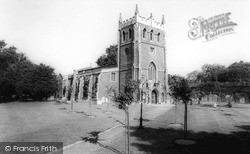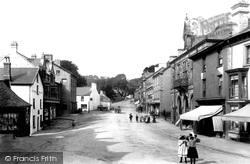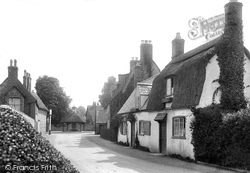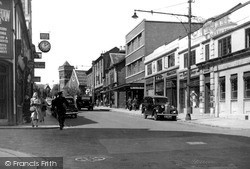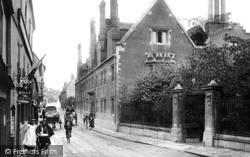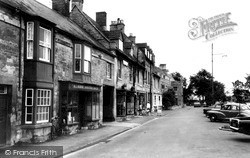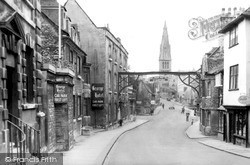Places
26 places found.
Those places high-lighted have photos. All locations may have maps, books and memories.
- Town End, Derbyshire
- Town End, Buckinghamshire
- Town's End, Somerset
- Towns End, Dorset
- Town End, Merseyside
- Town End, Cambridgeshire
- Town's End, Buckinghamshire
- West End Town, Northumberland
- Bolton Town End, Lancashire
- Kearby Town End, Yorkshire
- Town End, Cumbria (near Grange-Over-Sands)
- Town End, Cumbria (near Bowness-On-Windermere)
- Town End, Yorkshire (near Huddersfield)
- Town End, Yorkshire (near Wilberfoss)
- Town End, Cumbria (near Appleby-in-Westmorland)
- Town's End, Dorset (near Melbury Osmond)
- Town's End, Dorset (near Swanage)
- Town End, Cumbria (near Ambleside)
- Town End, Cumbria (near Lakeside)
- Town End, Cumbria (near Kirkby Lonsdale)
- Town End, Cumbria (near Ambleside)
- Town's End, Dorset (near Bere Regis)
- West-end Town, South Glamorgan
- Townend, Derbyshire
- Townend, Strathclyde (near Dumbarton)
- Townend, Staffordshire (near Stone)
Photos
23 photos found. Showing results 3,721 to 23.
Maps
195 maps found.
Books
3 books found. Showing results 4,465 to 3.
Memories
3,719 memories found. Showing results 1,861 to 1,870.
Rhoos Hall (Aka Roos Hall Or Rose Hall)
Previously I had posted to My Memories, a much longer, "informative" post, but I learned from further research that a lot of what I had previously heard was not accurate in fact. My memories remain unchanged, ...Read more
A memory of Beccles in 1995 by
Memories Of Iveston
I was born in 1934 and lived in Iveston for 18 years, leaving reluctantly in 1952. We first lived beside the duckpond, in the cottage attached to Letch Farm, run then or later by Mr and Mrs Harrison. Avis Harrison baked my ...Read more
A memory of Iveston in 1940 by
Childhood Memories.
I noticed with some surprise a photo of myself aged about 12 years. I am the girl on the left with the ponytail the year being about 1960. I don't recall the boys name but it looks as if we are standing by the machine that ...Read more
A memory of Lyme Regis by
'the Annie'.
The owner was my grandfather George Rowe. My father, his son, was born in Tenby in 1905 and died in late 1999 aged 93 years. You might be interested to learn that the boat (M26) in the middle of your picture was called ''The Annie'' and was ...Read more
A memory of Tenby by
Wartime Memories.
The roof of the Town Hall was set alight by incendiary bombs in the heavy air-raids on Manchester and surrouding areas in late December 1940. I remember seeing it, being a young boy at the time. Sale is about six miles from Manchester centre.
A memory of Sale
Featured Buildings.
The large building on the left edge of the photograph is Ruswarp Mill. A mill has been here since Saxon times and the first written record of this mill appears in the Domesday book. The name Ruswarp may have originated from the ...Read more
A memory of Ruswarp by
Winter At The Hall
As a boy I remember the big open fireplace in the main hall, and the times the large glass sheet above the fireplace falling down - this was to be a yearly thing if I recall correctly. Other memories - making our own snow skis; ...Read more
A memory of Grassington in 1959 by
Ashtead Resident Finds Herself In 1925 Caterham Bus Photo
The above photo is the pond which is close to Dorothy Connor's current home in Glebe Road, Ashtead. This area has not changed so very much since the time the Frith photo was taken in ...Read more
A memory of Ashtead by
A Long Way From St Pauls Road
Hi, my name is Susan Thompson, formerly Hawkins and I'm 54, I was born in the above address and lived there for 18 years although my parents lived there for over 40 years. I went to Brook St. school finally ...Read more
A memory of Northumberland Heath in 1967 by
Family History
I have recently found out that my Great Grandmother Emma Frost (nee Lake) had a baby girl in 1864 called Annie Frost and she was born in Buckhurst Hill. I suppose Emma must have known someone in the Town. It was legal, she was ...Read more
A memory of Buckhurst Hill in 1860 by
Captions
5,054 captions found. Showing results 4,465 to 4,488.
It is supported on stone pillars with a row of wooden columns in the centre, and is surrounded by a collection of 17th- and 18th-century hotels and town houses.
This market town is noted for its rare 13th-century lead spire and late Norman nave.
On the lane south from the crossroads the last two houses on the left are timber-framed, the White Cottage on the left with original framing in the side elevation and fake to the front.
Another view along the Welland towards Town Bridge, over which the old Great North Road crossed into Lincolnshire.
Since the by-pass opened, the town has less traffic and the High Street has been paved with herring-bone paviours.
This captures a time when everyone shopped on his or her local high street, and out-of-town shopping was unheard of.
Yet upriver, above London Bridge, were the more modest colliers, whose simple barges, loaded by man-power, carried consignments on to Thameside towns, for shipment to the Midlands and the north through
Demand for steam coal caused collieries to be developed, and over a million tons of coal were mined annually.
The need for a new Catholic church in the town became particularly pressing when nearby RAF Lyneham was unable to provide a full- time chaplain to the station, and they helped fund its completion
This thatched cottage with its little garden stood in Pondhu Road, in the valley bottom to the south west of the town centre.
The open aspect of the street pictured here and familiar to us today originates from the demolition of older buildings in 1862 to allow road widening.
We are looking out over Grange to Morecambe Bay from Charney Well Road, which rises steeply above the town. Now, houses occupy the slope in front of the camera.
This shows the heart of the Victorian holiday town, with the required esplanade and gardens for strolling.
The William Brown Library, with its fine portico of six Corinthian columns, was built in 1860 to house the natural history collection of the 13th Earl of Derby; this had been bequeathed to the town in
The hall, parts of which date from 1550, has been re-built and added to over the years.
At this time these shops would close at noon on Saturday, and Sunday opening was unheard of.
At the Dissolution, the nave was demolished and the western arch of the tower was filled in. The people of the town bought the remains of the original building, and it then became the parish church.
This town, known to its inhabitants as 'Mach', is situated at the far north-west corner of Powys, so distant that it is also in the Snowdonia National Park and just ten miles from the sea.
The name Houghton, always pronounced `Hoe`ton`, has its origins in Saxon times, although there is evidence that there was a settlement here before the Roman period.
Certainly there would have been confusion between the original title and the burgeoning Dunstable Road just visible in the photograph beyond Christ Church at the top of the hill.
Magdalene College was founded by Henry VI as lodgings for student Benedictine monks, and was sited far enough from the town centre to avoid its inmates falling prey to its temptations.
There is a pleasing lack of uniformity about the facades and rooflines of the buildings in the High Street, some of which are small cottages, and others grand town houses.
In the era of the stage coach, the George Hotel was classed as the best hotel on the Great North Road, and it is still one of the best in the area.
Magdalene College was founded by Henry VI as lodgings for student Benedictine monks, and was sited far enough from the town centre to avoid its inmates falling prey to its temptations.
Places (26)
Photos (23)
Memories (3719)
Books (3)
Maps (195)

